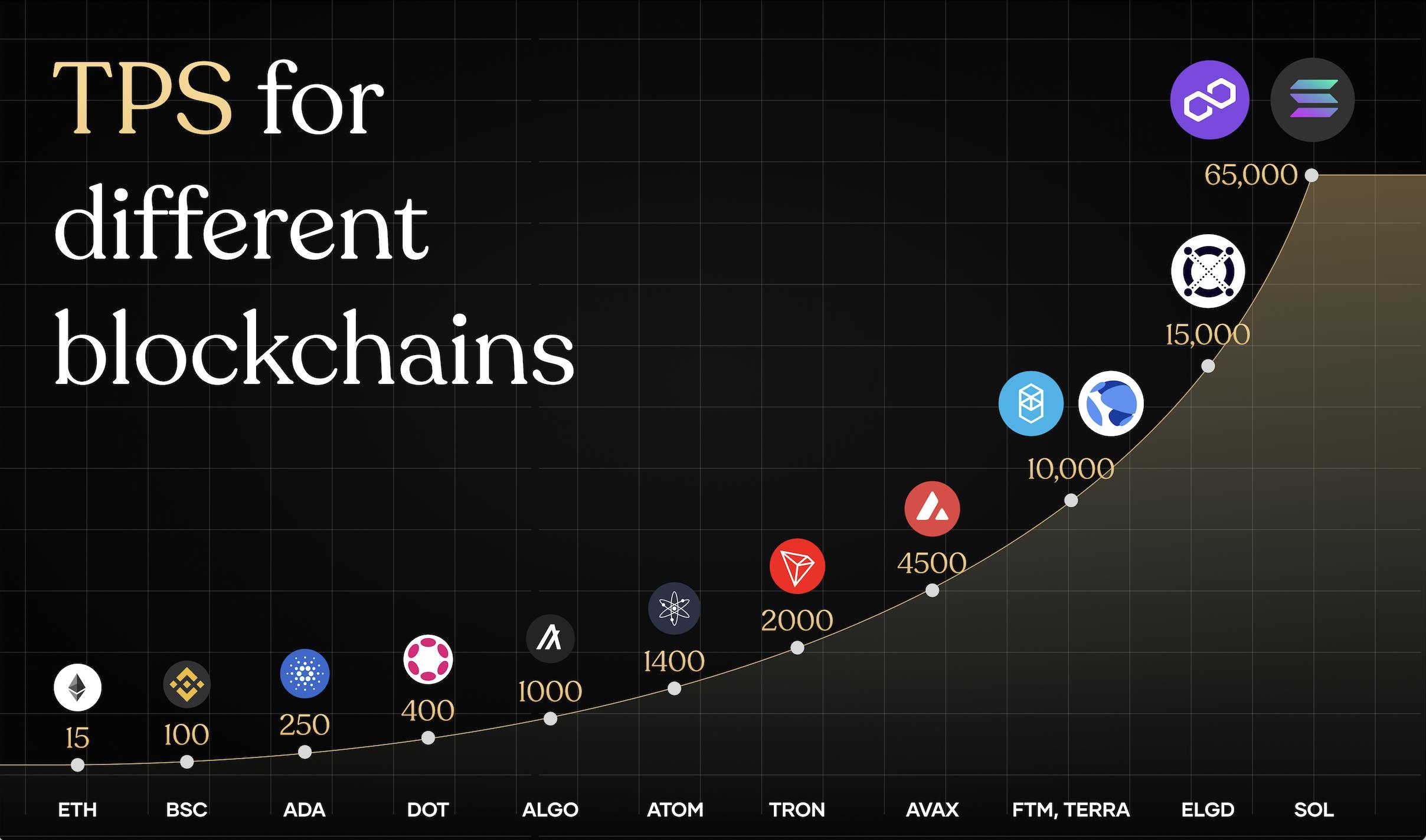What is Solana?
Jump to:
Solana is one of the more progressive blockchains that can boast of extremely high transactions per second and massive adoption in the crypto community. Solana was created by Yakovenko in 2017, an engineer by profession, who, before creating Solana, worked at one of the biggest semiconductor manufacturers, Qualcomm.
Theoretically, the Solana network can process upto 710,000 transactions per second. To put that into perspective, Visa can process upto 1700 transactions per second.
What makes Solana unique?
Solana is unique in the crypto world primarily because of 2 things:
Speed of Transactions
Solana processes about 3000 TPS, in contrast, ethereum processes only about 10-15 transactions per second. But what makes Solana faster?
Solana can execute thousands of smart contracts every second. If you haven’t read our article on Smart Contracts yet, do give it a read. It will help you understand about the world of smart contracts and how they can be leveraged to make smarter products
Here is an infographic that compares the speed of transactions across different blockchains

Transaction costs
The Solana blockchain has one of the lowest transaction fees (incorrectly referred to as ‘gas’ fees) amongst all blockchains. This allows Solana to have a much more vibrant developer community and more varied applications. There are 2 major reasons that allow Solana to have lower gas fee for crypto transactions:
- Lower block time
- Higher block size
Lower block time (0.4 secs) and higher block size (20000 transactions) allows the Solana blockchain to have much lower transaction fees of about $0.00025 as compared to Ethereum that has gas fee of about $10
How does Solana work?
Solana uses a novel approach that is a combination of proof of history and proof of stake consensus mechanisms. Before we proceed, it is important that you read our articles on how proof of history and proof of stake mechanisms work.
In simple terms, the proof of history consensus mechanism allows the addition of a new block to the blockchain network without any mutual agreement. This allows newer nodes to be added very quickly. Every node in the Solana blockchain has its own clock and they take decisions without consulting other nodes. This is a modified approach to the widely lauded proof of stake (PoS) mechanism
What is SOL?
Solana is the blockchain and SOL is the Solana network’s native token, which is the primary means of transferring value over the Solana blockchain. At the time of writing this article, there are about 342 million SOL tokens in circulation with a total market cap of about $10 billion. A common criticism of the SOL token is that only about 38% of the supply is available for the community, making it a little more concentrated than other coins out there
Solana v/s Ethereum
The strongest voices in the Solana ecosystem, and, to some extent in the larger crypto community, Solana is referred to as ‘Ethereum Killer’. While this may or may not turn out to be the reality, here are a few points that will help you understand the key differences
Proof of Work (PoW) v/s Proof of History (PoH)
Solana uses a proof of history consensus mechanism whereas Ethereum uses a proof of work mechanism. This allows Solana blockchain to have a much higher throughput as compared to the Ethereum blockchain and allows the network to have a lower gas fee.
Validator ecosystem
When it comes to validator ecosystem, Ethereum has a much vibrant community as compared to Solana. Because of certain inefficiencies in the Ethereum blockchain, there are a lot more layer 2 solutions on the network as well. These solutions bring their own community, thus making a stronger community of developers building on Ethereum.
Despite the concerns over centralisation, Solana remains one of the largest blockchain networks.
Like this article? Spread the word
Subscribe to our
newsletter!
Receive timely updates on new posts & articles about crypto world.